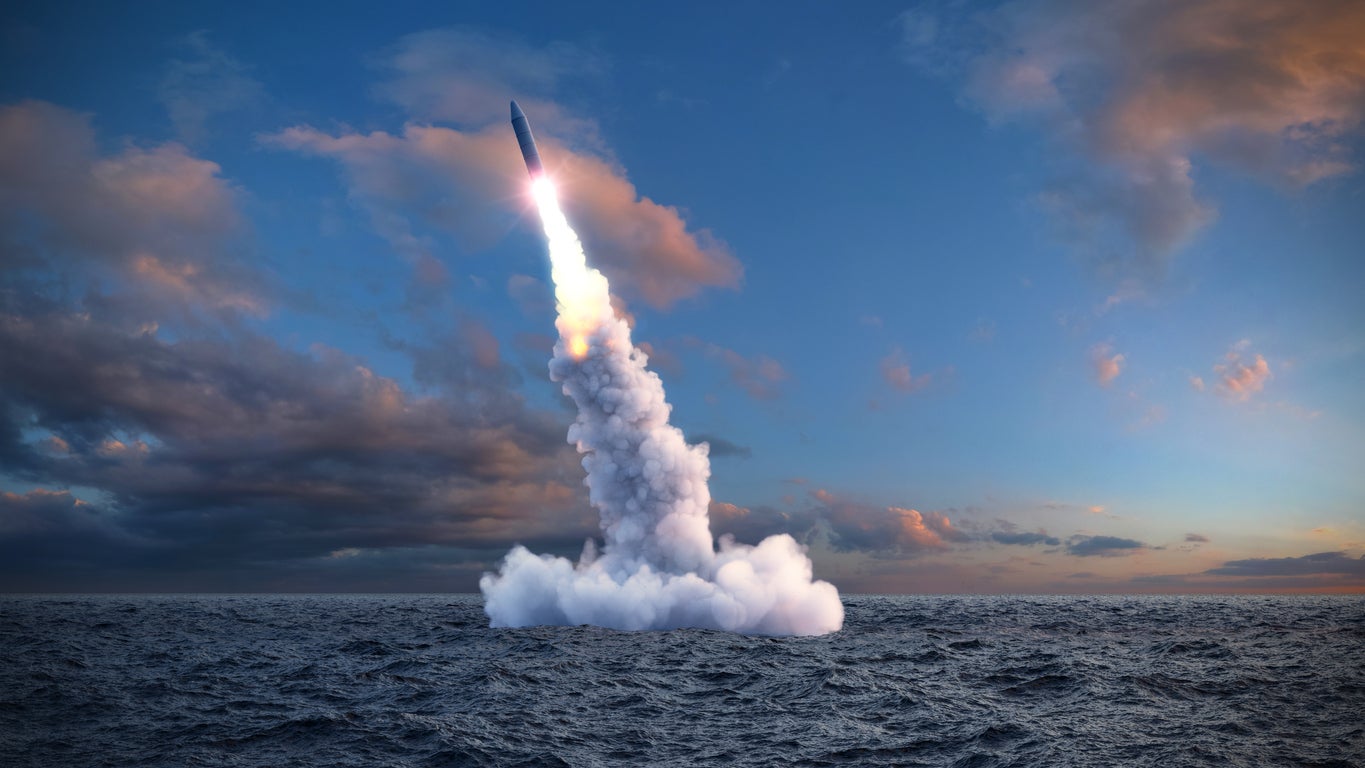Six key questions Whitehall must answer about the UK’s decision to raise its nuclear weapons stockpile
This may be the biggest reset for foreign and defence policy since the Cold War – does Whitehall understand what it has done?


The Integrated Review may indeed be the biggest reset for foreign and defence policy since the Cold War, but Whitehall seems surprised that the world’s focus has been on the rise in the cap on nuclear warheads, a rise that was flagged up in none of the advance press briefings sent to opinion formers such as myself.
Does Whitehall understand what it has done? A reading of the IR gives no reassurance that the Ministry of Defence has not forgotten the basic theology of deterrent theory and UK’s nuclear posture, hence fails to grasp the profundity of the changes its announcement implies.
This paper is just the first of a set, with detail to follow. Here are some questions that the subsequent papers need to answer.
1. Why have nukes at all? The nuclear deterrent has always been sold as the weapon of last resort, only to be used in response to an existential threat. The Cold War was a battle for global supremacy between competing universalist ideologies; truly a battle for globalisation. China and Russia both abandoned the ideology after, respectively, Mao and the Cold War (and Biden’s US has now formally abandoned regime change). This means that there is no existential threat to the physical land mass of the UK. So what now is the justification for nuclear weapons?
2. The paper makes much of how our nuclear weapons form part of our Alliance commitments. The abandonment of the Intermediate Nuclear Forces agreement has indeed raised fears of a nuclear arms race in Europe. But the INF treaty dealt with short and medium range weapons, which the UK has never embraced; an appropriate Alliance response should logically have been left to France and the US. Potentially increasing our strategic arsenal in response to the potential increased tactical threat from Russia seems inappropriate and disproportionate.
3. Why are nukes a relevant response to the Russian threat? Russia is a threat to us not just because of Putin’s adherence to the Dostoyevsky belief in the cultural and spiritual importance of the Russian people (wherever they might be) but also because it fears our example will encourage unrest internally. Undermine the soft power competitor abroad and Russia increases its security at home. (Brexit was celebrated in the Kremlin and we should expect Russia to back Le Pen against Macron in the next French presidential elections, with potentially terminal consequences for the EU.)
Among the reasons Russia has eyes on the Baltic nations is the large native Russian populations (25 per cent in Latvia’s case). As the example of Ukraine and Crimea show, should Russia wish to get involved in the Baltics (and “liberate” the Russian populations), it would not involve nuclear, chemical or biological weapons, it would use “little green men” and hybrid war techniques as per the Gerasimov doctrine. How is our raised cap on strategic nuclear weapons of any relevance to this scenario?
4. Is the raised cap real or bluff? The paper talks of raising the cap on nuclear warheads; it does not commit to increasing their number. Either there is a funding line for warhead enhancements or there isn’t; security classification may prevent us knowing this. Given that there is already ambiguity in our nuclear posture, it is not clear why raising the cap strengthens our posture.
5. How are nuclear weapons relevant to the multiplication of threat vectors? The paper talks of the multiplication of threats, including non-state threats. The high priest of deterrence theory, Sir Michael Quinlan, was precise on this point. “Deterrence works by displaying the prospect of costs in terms of values prized by the ‘deteree’.” Hence nuclear weapons “can certainly play no useful direct role against terrorists, who themselves have no evident asset base that nuclear weapons could credibly threaten”. And if it is seriously the government’s intent for nuclear weapons to be a potential response to a cyberattack, then the moral, legal and practical difficulties of this posture need exposing in future papers; for the challenges are legion.
Read more:
6. Do the opportunity costs of raising the cap (assuming we do raise our warhead numbers) fatally undermine our overall deterrence posture? Deterrence works by over-facing the enemy at every level of competition; the nuclear weapon is the ultimate ace up the sleeve.
But, as any bridge player knows, it is folly to bid four spades when all you have in your hand is the ace of spades. The nuclear card can only be played once and if we get beaten at a lower level of conflict at which a nuclear response is incredible, then we lose with our nukes still up our sleeve. Have we the resource to win at every escalatory level? Given the reports on how threadbare our conventional forces are, this seems unlikely. And any financial commitment to raise our warhead cap will only make this worse.
Major General Jonathan Shaw was Director Special Forces (DSF) and the commander of UK forces in southern Iraq in 2007
Join our commenting forum
Join thought-provoking conversations, follow other Independent readers and see their replies
Comments
Bookmark popover
Removed from bookmarks